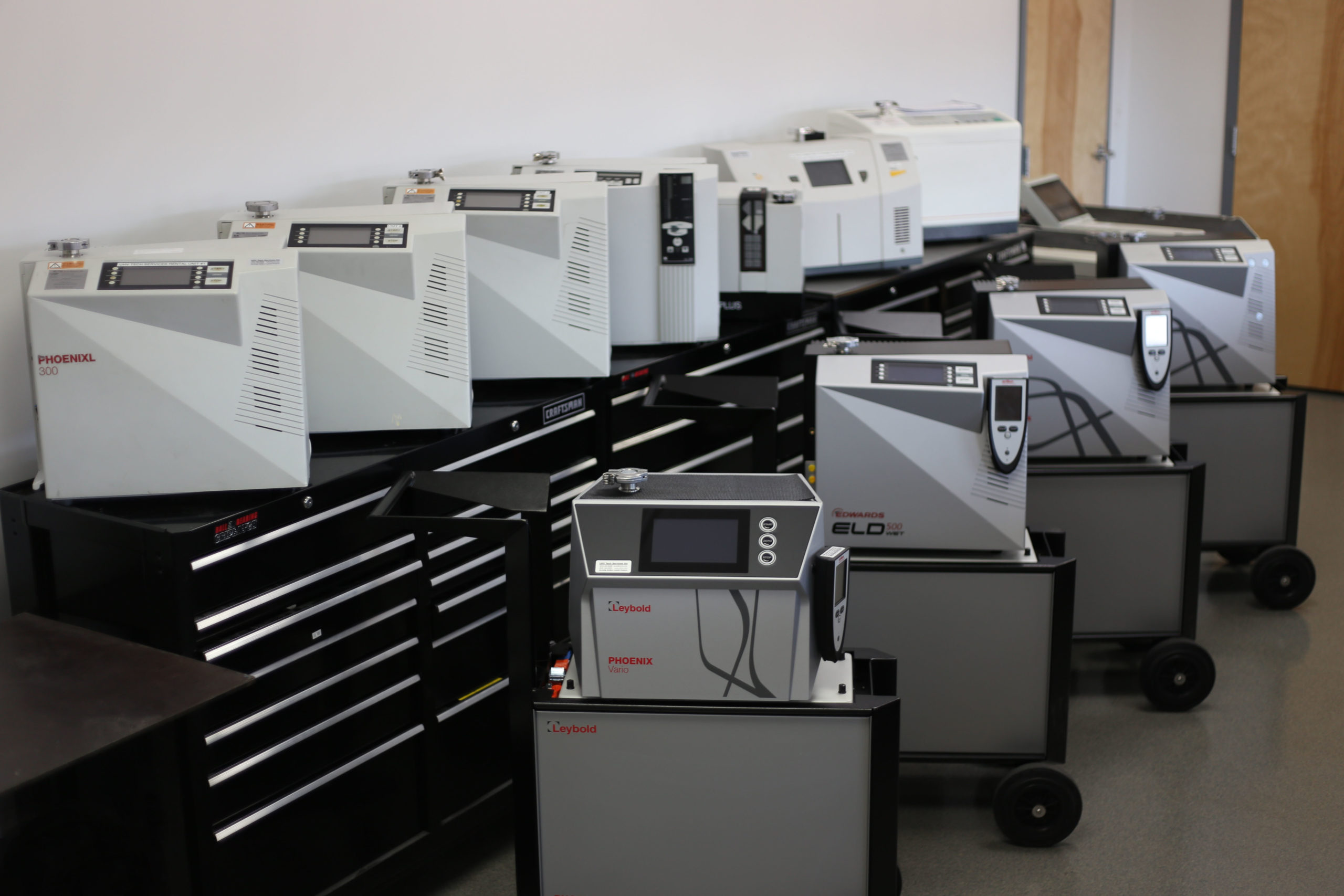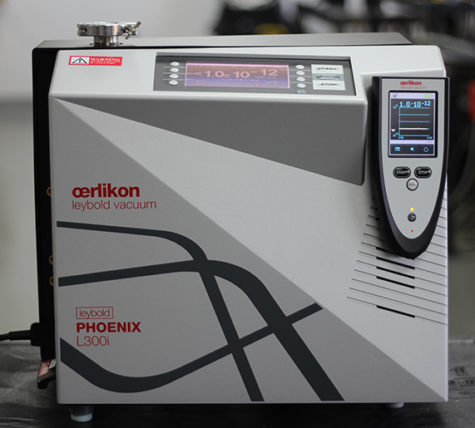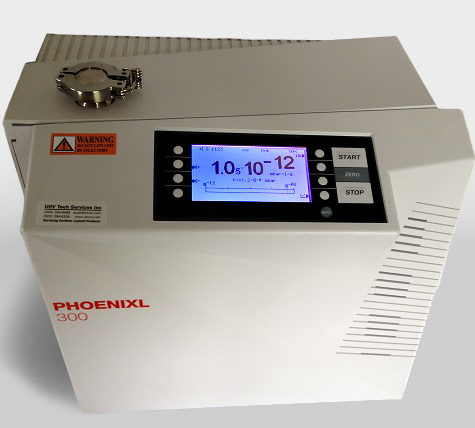Our Helium Leak Detectors
We Offer 3 Types of Units:
- Internal Wet Pumps (oil pump, compact, good performance)
- Modular (best performance, use your pump or rent from us)
- Internal Dry Pumps (use no oil, are small and compact)
Contact us today for more rental information!


Rental Info
Leasing
Call us for more specific info on available lease-to-own programs!
Shipping
Units are shipped FedEx freight on a pallet in a hard poly case and shipped back the same way.
Popular Units
Available Accessories
- QT100 with sniffer
- SL300 sniffer
- Wireless Remote Handpiece
- Vacuum Hoses
- Helium spray gun, hose, and regulator
- Fittings and valves
| Rental Leak Detector Models |
|---|
| Leybold Phoenix L300i – $495/week or $1900/month |
| Leybold Phoenix L300i Modul – $495/week or $1900/month |
| Leybold PhoeniXL 300 – $495/week or $1900/month |
| Leybold PhoeniXL L300i Dry – $495/week or $1900/month |
| Leybold PhoeniXL 300 Modul – $495/week or $1900/month |
| Leybold UL 200 Dry – $495/week or $1900/month |
| Leybold UL 200 – $495/week or $1900/month |
| Leybold UL 500 – $700/week or $2700/month |
| Leybold Quadro – $700/week or $2400/month |
| Edwards ELD500 wet – $495/week or $1900/month |
| Edwards ELD500 Flex – $495/week or $1900/month |
| Inficon UL1000 Fab – $700/week or $2700/month |
| Inficon Modul 1000 – $495/week or $1900/month |
| Agilent Varian VS MR15 Modular – $495/week or $1900/month |
| Alcatel Adixen ASM 142 – $495/week or $1900/month |
| Alcatel Adixen ASM 142 Dry – $700/week or $2700/month |
| Alcatel ASM182TD+ – $1,000/week or $3500/month |
| Pfeiffer ASM 340 – $700/week or $2700/month |
| Pfeiffer ASM 392 – $1,000/week or $3500/month |
| Leybold Mobilis Gas Leak Detector – $300/week |
| Matheson Model 8067 Gas Leak Detector – $300/week |
Helium Leak Detector Applications
- Semiconductor production
- Vacuum coating
- Research and development
- Chemistry/pharmaceutical
- Metallurgy/furnaces
- Automotive industry
- Laser engineering
- Particle accelerators
- Analytical engineering
- Systems with cryopumps
- Cooling and air conditioning
- Electrical engineering
- Mechanical engineering
- Power plants
- Systems engineering
- UHV applications
- Vacuum Furnaces
- Lyophilizers
- Vacuum Chambers
What is helium leak testing?
Helium is one of the smallest gas molecules and is inert. Being inert it is relatively safe to use and will not react with any of the materials within the part to be tested. In most helium leak testing applications, one uses a mass spectrometer (leak detector) tuned to detect helium. A 95% nitrogen 5% hydrogen mix can be used as well. Helium leak testing is generally more sensitive than using pressure decay techniques. Pressure decay also does not allow you to pinpoint the specific location of the leak using a tracer gas.
Leak Detection Methods
Vacuum: The equipment to be tested is evacuated using the leak detector or the leak detector in conjunction with a larger roughing pump. A tracer gas is applied to the outside of the equipment to pinpoint the leak location.
Sniff: The equipment to be tested is pressurized with a search gas or a search gas mixture. A sniffer probe connected to the leak detector will be used to sniff for leak location on the equipment.
Between the two methods there exist many variations depending on the particular application.


